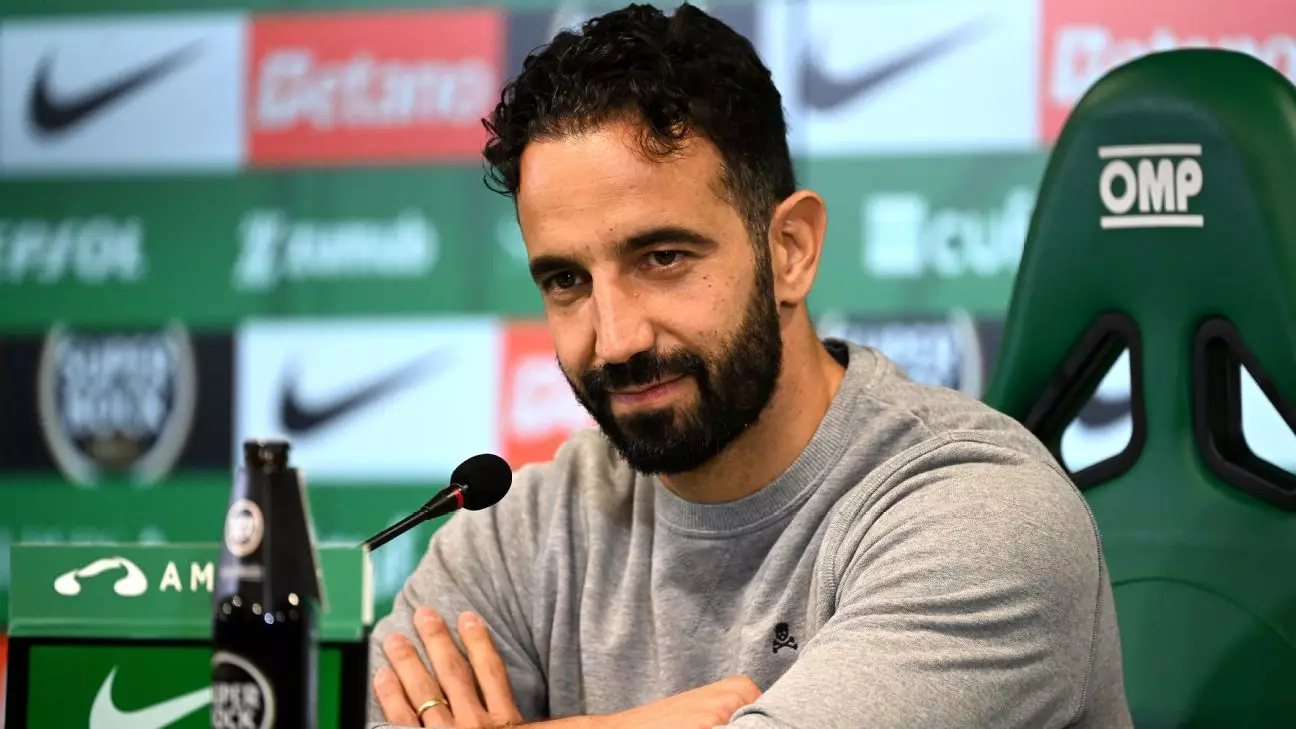Manchester United has made headlines with the appointment of Rúben Amorim as their new head coach. The 38-year-old coach, previously associated with Sporting CP, has signed a two-and-a-half-year contract and is set to begin his tenure on November 11. This strategic decision places the club at a pivotal moment, with key player contracts nearing expiration. Amorim’s arrival not only marks a new chapter for the club but also sparks discussions about the future of players such as Victor Lindelöf and Christian Eriksen.
Player Contracts and Coaching Dynamics
As United navigates the complexities of player contracts, it becomes evident that Amorim will be consulted before any decisions are finalized. With several prominent players, including Lindelöf and Eriksen, out of contract at the end of the season, the need for a thoughtful approach is paramount. This consultation signifies a shift from the previous management style under Erik ten Hag, allowing Amorim to contribute his insights on which players to retain, albeit with decision-making power resting with key executives at the club.
The reality of Amorim’s role is that he is the head coach rather than a traditional manager, affecting his influence over the recruitment process. The club’s hierarchy—the CEO Omar Berrada, sporting director Dan Ashworth, and technical director Jason Wilcox—will carry the final responsibility for contract renewals. This dynamic scenario raises intriguing questions about the overall alignment and collaboration between management and coaching staff, especially given the substantial task ahead.
Amorim is expected to implement a tactical evolution, favoring a 3-4-3 formation that could suit a diverse range of player skill sets within the squad. For individuals like Harry Maguire, who previously struggled for consistency under Ten Hag, this new system could provide an avenue for redemption. Having experience in a three-man defense during his international tenure, Maguire’s familiarity with this setup may help facilitate a smoother transition.
Moreover, the adaptability of players will be instrumental as United moves into this new tactical framework. With Amad Diallo and Lindelöf also under scrutiny, the upcoming matches will serve as critical opportunities for them to demonstrate their capabilities within Amorim’s strategy. For Lindelöf, his historical connection with Amorim from their Benfica days adds a personal touch that could enhance his prospects, especially with rumors of an exit in the air.
As Manchester United prepares for this change, the club’s decisions will shape its identity moving forward. The looming contract decisions represent not just a retention of talent but also the alignment of roster with the coach’s vision. With Amorim at the helm, United has the potential to recalibrate their ambitions, especially if they can harness the strengths of their current players while also considering the long-term implications of contract negotiations.
Ultimately, the forthcoming weeks will be crucial for both Amorim and Manchester United. With a challenging schedule ahead and the club’s historical aspirations in mind, the groundwork laid in the transfer market will be indicative of the broader trajectory. As fans look forward to fresh tactics and renewed strategies, the excitement surrounding Rúben Amorim’s leadership will certainly be reflected in the outcomes on the pitch.

